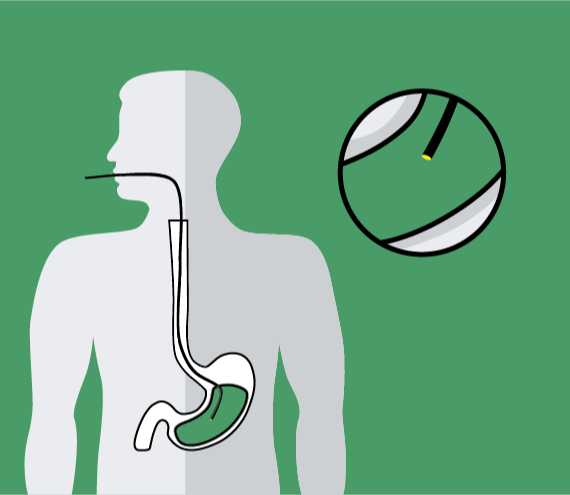Upper Endoscopy
– What’s Causing Your
Digestive Problems?

Also known as an EGD, the upper endoscopy is used when symptoms present which suggest abnormalities in the esophagus, stomach and first potion of the duodenum, which is where the small intestine begins. Together, these portions of your digestive system are known as the upper digestive tract.
Upper Endoscopy
The EGD is usually performed as an outpatient service. A thin scope equipped with a small camera is inserted into the mouth to view the upper digestive tract. Sometimes, this procedure will be done at a hospital or in a hospital emergency ward, to pinpoint conditions like bleeding in the area and to treat them.
Symptoms indicating a need for an Upper Endoscopy
If you’re experiencing:
It’s important that you advise your Gastroenterologist at the earliest opportunity, as these indicate an upper endoscopy.
This procedure is much more reliable for detecting conditions like cancer in the upper digestive tract and much more accurate than X-rays for that purpose.
Polyps can be identified and removed during an upper endoscopy and biopsies (tissue samples) may be taken and tested.
Areas which have been narrowed by conditions like cancer in the esophagus, stomach and duodenum can be expanded using medical devices like balloons. When strictures like this are found during an upper endoscopy, a stent may also be deployed to hold it open.
Bleeding in these areas can also be stopped and any obstructions removed.

Your Health, Our Priority
Preparing for an Upper Endoscopy

During your consultation, it’s important to advise your physician if you’re pregnant, or taking medications like antibiotics. But you should tell your doctor of any and all medications you’re taking at the time of consultation.

Your doctor also needs to know if you have a lung or heart condition and whether you have any allergies to medications that you’re aware of. But please dicuss this with our doctor.

If you’ve ever had an infection in the heart valves, rheumatic heart disease or have artificial heart valves, this is all crucial information to pass on to your physician.

Refrain from eating or drinking for 8 hours prior to your upper endoscopy.

If you’re taking medication for high blood pressure, conditions of the heart or thyroid, you may continue to take your scheduled doses with only a sip of water prior to the procedure. But please dicuss this with our doctor.

Those using insulin to treat diabetes will need to adjust dosage on the day of their procedures. Talk to your care provider about this requirement.

The procedure takes about 15 to 20 minutes and you’ll remain in recovery for about 30 minutes, until discharge afterwards.

Because you’ll be sedated, ensure that you arrange for someone to get you home after the procedure, as you’ll be groggy for 8 hours following your upper endoscopy.

When the results of testing are returned, your physician will review them with you and suggest treatment based on those results.
